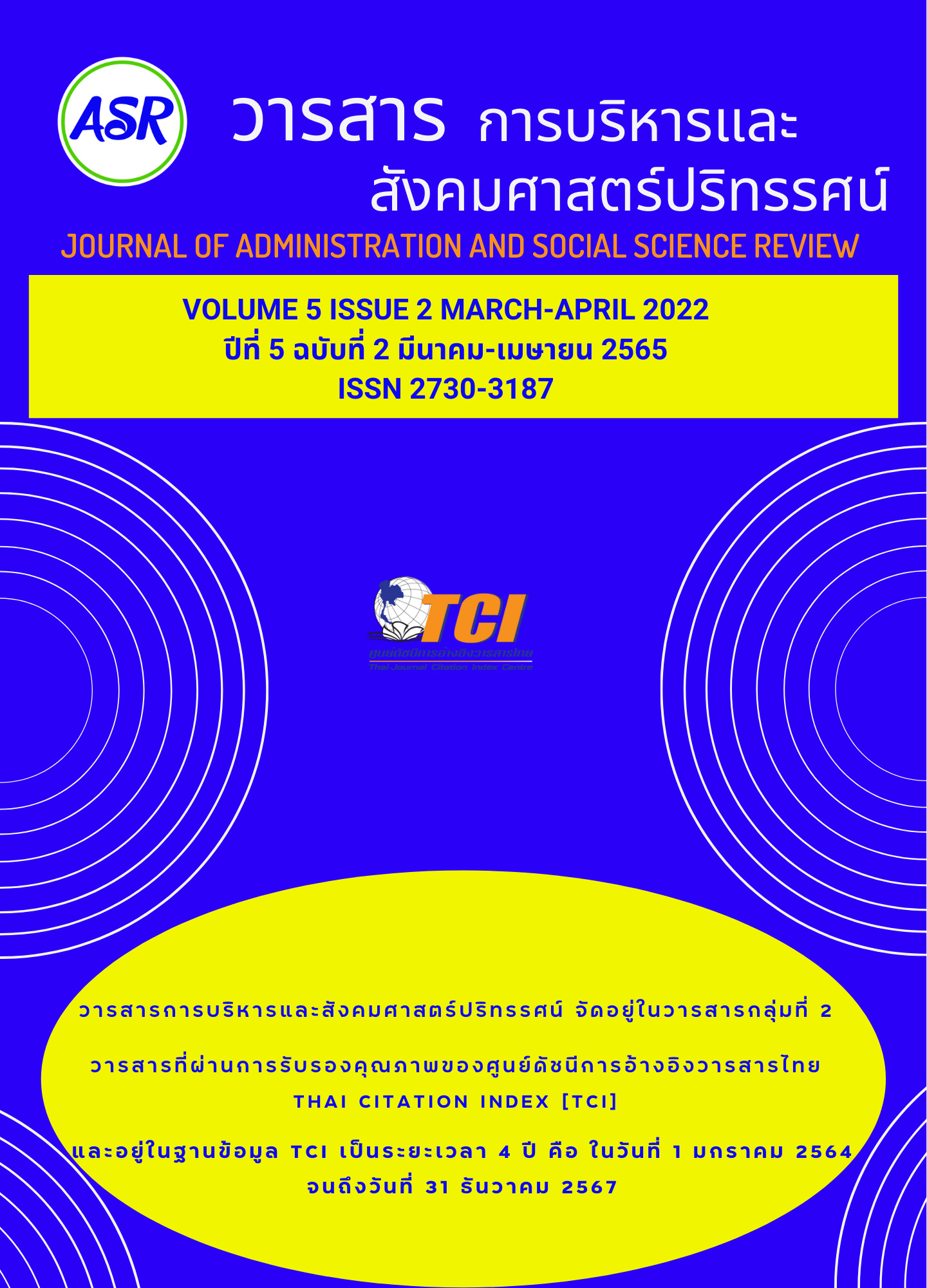Responses to PM2.5 and Socioeconomic Conditions: A Case Study of Motorcycle Taxi Drivers in Din Daeng District, Bangkok
Keywords:
PM2.5, Air pollution, Behavioral responses, SocioeconomicsAbstract
The purpose of this research was to study behavioral responses to small dust particulate matter 2.5 microns (PM2.5) among motorcycle taxi drivers in Din Daeng District, Bangkok. By using a questionnaire, the sample group consisted of 312 motorcycle drivers from the Yamane sampling method at 95% confidence level.The respondents' behavioral responses regarding N95-mask wearing were divided into three groups: 30.08 % of those wearing all day;
21.05 % of those wearing not unusally; and 47.08% of those not wearing. By average, the drivers spent ฿ 1,577.53 /household/year or ฿ 492,190 /year on the masks, based on the level of measurement classified by socioeconomic conditions: education level, salary, and the presence of congenital diseases related to respirations. Due to the behavioral responses, there were three implications: going to work regardless of the dust accumulation exceeding standard value; increasing cost of mask purchase; and increasing cost .of respiratory disease tests. The results showed that the level of education was related to the increase in cost of purchasing masks; and salaries were associated with an increasing cost of respiratory disease tests. With the Chi-square analysis, there were the respiratory diseases related with an increasing cost of mask purchase at the 0.05 level statistically.
Downloads
Published
Versions
- 2022-04-12 (2)
- 2022-04-12 (1)



